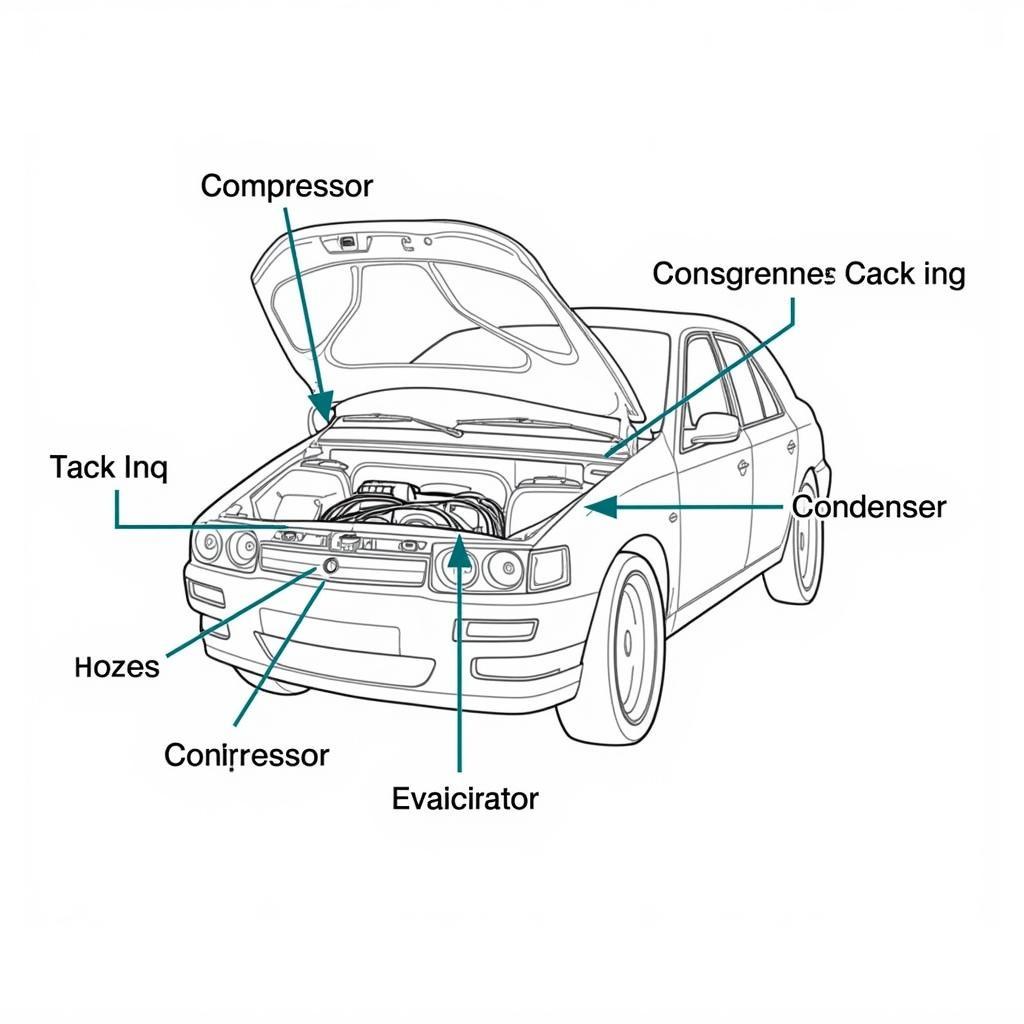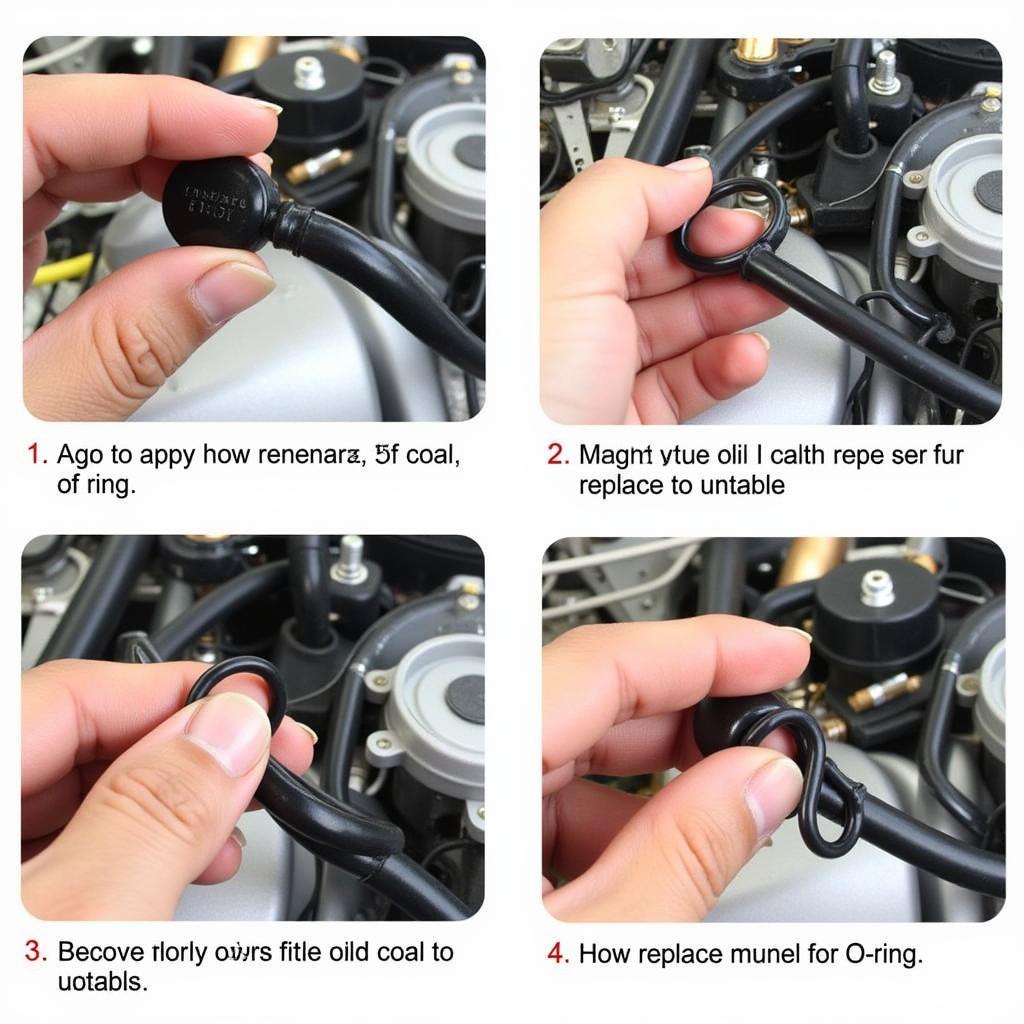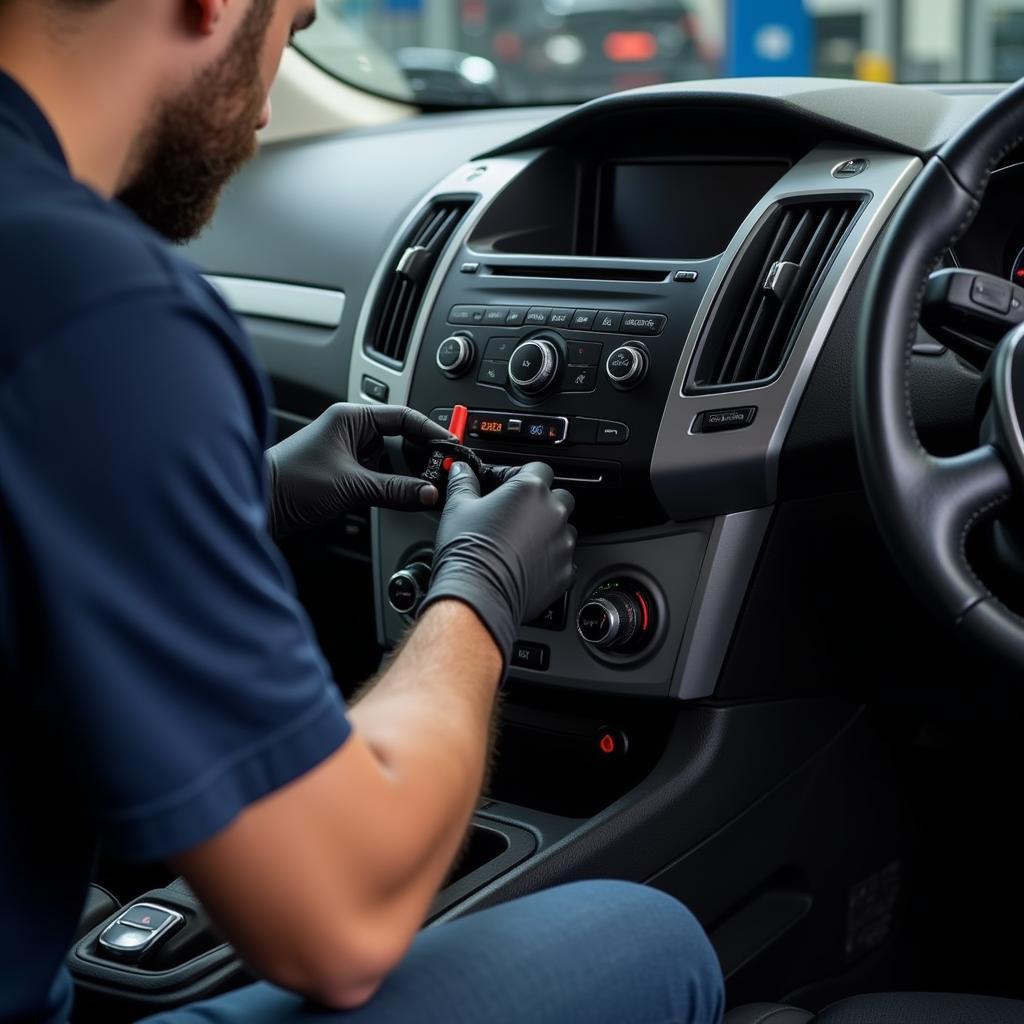A malfunctioning car AC system can make driving unbearable, especially during hot weather. A common culprit is an AC leak, which can lead to reduced cooling performance and even complete system failure. This guide provides comprehensive steps on how to identify and fix AC leaks in your car.
 Car AC Leak Detection Methods
Car AC Leak Detection Methods
Identifying the source of the leak is the first and most crucial step in fixing your car AC. Several methods can help you pinpoint the leak’s location. One popular method involves using a UV dye. This dye is injected into the AC system, and a UV light is used to locate the leak, which will fluoresce under the light. Another option is using an electronic leak detector, a sensitive device that can detect even the smallest refrigerant leaks. A simpler, more DIY approach involves using soapy water to create bubbles around potential leak areas.
Pinpointing the AC Leak Source
Different components of your AC system can be prone to leaks. The most common culprits include the compressor, condenser, evaporator, hoses, and O-rings.
Common Leak Locations in Car AC Systems
- Compressor: Leaks in the compressor can be serious and often require professional repair or replacement.
- Condenser: Located at the front of the vehicle, the condenser is vulnerable to damage from road debris.
- Evaporator: Located inside the dashboard, evaporator leaks can be difficult to access and repair.
- Hoses and O-rings: These components are susceptible to wear and tear over time and can develop leaks.
 Car AC Components Prone to Leaks
Car AC Components Prone to Leaks
Similar to how to fix ac refrigerant leak car, addressing a leak involves identifying the source and choosing the appropriate repair method.
DIY AC Leak Repair Options
For minor leaks, especially in hoses and O-rings, some DIY repair options are available. AC leak sealants are commercially available and can be effective for sealing small leaks. However, these are temporary solutions and should not be relied upon for long-term fixes. Replacing worn-out hoses and O-rings is a more permanent solution. However, this requires some mechanical aptitude and the right tools.
Using AC Sealants Effectively
- Choose the right sealant: Ensure the sealant is compatible with your AC system’s refrigerant.
- Follow the instructions: Carefully follow the manufacturer’s instructions for application.
- Understand the limitations: Remember that sealants are temporary fixes and may not work for all types of leaks.
 DIY Car AC Leak Repair
DIY Car AC Leak Repair
For those looking to learn more about how to fix slow leak in car ac, this guide offers valuable insights and practical tips.
When to Seek Professional Help
While some AC leaks can be addressed with DIY methods, more complex leaks, especially those involving the compressor or evaporator, require professional expertise. Incorrectly handling the AC system can lead to further damage and even pose safety risks due to the refrigerant.
“AC systems operate under high pressure,” explains automotive expert, John Miller, ASE Certified Master Technician. “Attempting repairs without proper knowledge and tools can be dangerous.”
Preventing Future AC Leaks
Regular maintenance is key to preventing future AC leaks. This includes periodic inspections of the AC system, especially hoses and connections, and prompt replacement of worn-out components. Keeping the system clean and free of debris can also help prevent leaks. “Regular checks can save you from costly repairs down the line,” advises Sarah Johnson, automotive engineer and consultant.
This is crucial, much like the information provided in how to fix leak in car ac system. Prevention is always better than cure. Furthermore, understanding fixing car ac hose leaks can be invaluable for preventing more extensive damage.
Conclusion
Fixing an AC leak in your car can range from a simple DIY fix to a more complex repair requiring professional assistance. By understanding the different types of leaks, how to identify them, and the available repair options, you can ensure your car’s AC system remains in optimal condition. Remember, regular maintenance is crucial for preventing future leaks and keeping your car cool and comfortable. For any assistance or further guidance, connect with AutoTipPro at +1 (641) 206-8880 or visit our office at 500 N St Mary’s St, San Antonio, TX 78205, United States. We’re here to help you keep your car’s AC running smoothly. As detailed in how to fix leaking ac in car, timely repairs and preventative measures are vital for a well-functioning AC system.






Leave a Reply